#British Crime Fiction Writers
Explore tagged Tumblr posts
Photo
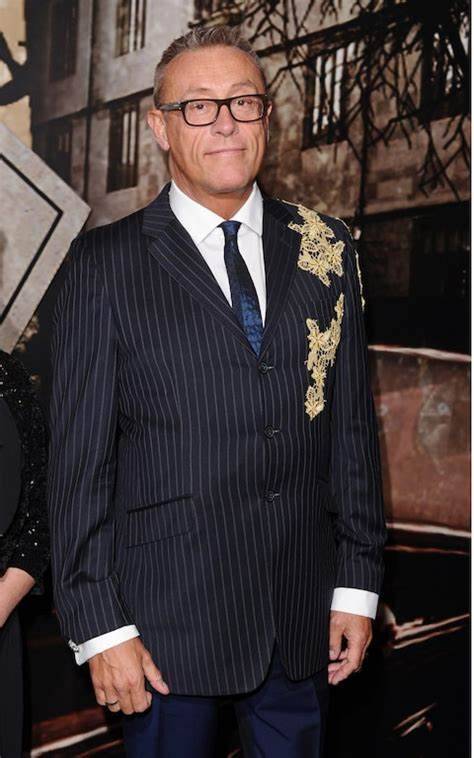
CHRISTOPHER FOWLER (1953-Died March 3rd 2023,st 69). English thriller writer. While working in the British film industry he became the author of fifty novels and short-story collections, including the Bryant & May mysteries, which record the adventures of two Golden Age detectives in modern-day London. https://en.wikipedia.org/wiki/Christopher_Fowler
#Christopher Fowler#English Novelists#British Novelists#British Authors#English Authors#Novelists#Crime Fiction Writers#British Crime Fiction Writers#Bryant & May#Notable Deaths in March 2023#Notable Deaths in 2023
1 note
·
View note
Text
Blogging A to Z: Day 1 - Agatha Christie, the queen of cozy mysteries
In this blog post, we pay tribute to Agatha Christie, the legendary queen of cozy mysteries and one of the most beloved mystery writers of all time. We delve into her life, her work, her legacy, and her impact on the mystery genre and literature as a whol
Hey there, lovely readers! It’s your favorite book nerd and pun enthusiast here, ready to talk about one of my absolute favorite authors: Agatha Christie. If you haven’t heard of her, then honey, you’re in for a treat. She’s the queen of cozy mysteries, the grand dame of whodunits, the mistress of plot twists. Basically, she’s a genius at making you feel simultaneously terrified and cozy at the…
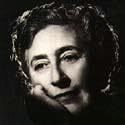
View On WordPress
#Agatha Christie#book recommendations#british authors#cozy mysteries#crime novels#detective fiction#hercule poirot#intrigue#literary legacy#miss marple#murder#mystery writers#suspense#whodunits
1 note
·
View note
Text
Hello fans of Re: Dracula who were introduced to fiction podcasts through the updates from our good friend Jonathan Harker! Now that the story's over (sob!), would you like some recommendations for some other audio dramas that you might enjoy, made by some of the folks who worked on the podcast?
Jonathan Sims, who played our local phonograph enthusiast, is the writer of the hugely popular horror podcast, The Magnus Archives. The Head Archivist of the Magnus Institute records statements made by members of the public, detailing strange encounters with the supernatural. What soon becomes clear is that these statements do not describe separate and unrelated events, and a bigger and horrific picture begins to emerge. Also appearing as recurring characters in this series are both Sasha Sienna and Alasdair Stuart.
Karim Kronfli is a prolific voice actor, and while he might be best known for his roles in both Re: Dracula and The Magnus Archives, he has voiced a wide range of characters in many different fiction podcasts. Out of all the ones he's appeared in, I would personally recommend urban fantasy anthology series, Unseen. The unseen world exists alongside ours, but only a few humans can see it. It's a world where magic and magical creatures exists, and Karim's character tells his story in episode 7, titled We Ourselves.
Beth Eyre and Felix Trench played twins Antigone and Rudyard Funn in Wooden Overcoats, a British sitcom set on the tiny fictional island of Piffling, in the English Channel. The twins run a funeral parlor together, the only one on the island, until a newcomer arrives. Eric Chapman (played by Tom Crowley) sets up a much more successful funeral parlor, and the story is narrated by the Funns' house mouse, Madeline.
Alan Burgon plays the Interviewer in The Amelia Project. The Amelia Project is a secret organisation, and clients come to them looking for their help in faking their deaths. The Interviewer listens to each client's story, before concocting unique and often elaborate ways in which they will stage their deaths, before being reborn into a new identity.
David Ault is also a very recognisable voice to anyone who spends a considerate amount of time listening to fiction podcasts, and The Kingmaker Histories feels like an appropriate choice here. A weird steampunk series set in the Valorian Socialist Republic in 1911 , this story involves found family, its own intriguing magic system, and being gay and doing crime.
Our favourite cowboy, Giancarlo Herrera, plays one of the protagonists in sci-fi action/thriller, Primordial Deep. Spinner is part of a team which is sent deep beneath the sea to investigate the resurgence of creatures thought to be long-extinct. There's plenty of horror to be had here, as something ancient is stirring in the depths of the ocean.
As for the crew? Tal Minear works on so many podcasts, and if you like fantasy stories, I would recommend the delightfully lighthearted Sidequesting, which follows new adventurer Rion, as they help people on their travels. If you would like some more horror, there's their spoiler-driven anthology series, Someone Dies in This Elevator.
Hannah Wright's Inn Between is a fantasy series based on D&D. Each episode follows a party as they meet in the Goblin's Inn, in between adventures, as the tavern follows them around wherever they go.
Stephen Indrisano's upcoming docu-horror Shelterwood promises to be a series which explores the horror of suburbia, as it follows one man's quest to find his missing sister. Until this is released, I would recommend Do You Copy, in which Stephen plays one of the protagonists. This found footage horror series follows the events which unfold after the closure of Red Tail National Park, and the people who were left inside the park, after its mysterious closure.
Ella Watts is regarded as a walking encyclopedia of all things audio fiction, and has worked on several high-profile projects, including directing both Doctor Who: Redacted and Marvel Move. Her upcoming Camlann is a post-apocalyptic series due to be released next year, inspired by Arthurian legends and British folklore. She is also the executive producer of Tin Can Audio's (who are also producing Camlann) beautiful experimental series, The Tower. The protagonist of this story, Kiri, leaves her life behind to climb an impossibly high tower, making phonecalls along the way.
Newt Schottelkotte's Where The Stars Fell is a supernatural fantasy set in the town of Jerusalem, Oregon. Cryptozoologist Dr Edison Tucker arrives in the town to carry out some research, and meets her roommate, author Lucille Kensington. There's so much more to this strange town than first meets the eye, with a huge revelation at the end of season one.
If you're new to fiction podcasts, welcome! I hope this short (ish!) and very much non-comprehensive list gave you some ideas of what to listen to next!
#Re: Dracula#audio fiction#audio drama#podcasts#podcast recommendations#podcast recs#the mortifying ordeal of being known WELP#me yeeting this list into the void and then disappearing for the forseeable future
499 notes
·
View notes
Text
NYT's Notable Books of 2023
Each year, we pore over thousands of new books, seeking out the best novels, memoirs, biographies, poetry collections, stories and more. Here are the standouts, selected by the staff of The New York Times Book Review.
AFTER SAPPHO by Selby Wynn Schwartz
Inspired by Sappho’s work, Schwartz’s debut novel offers an alternate history of creativity at the turn of the 20th century, one that centers queer women artists, writers and intellectuals who refused to accept society’s boundaries.
ALL THE SINNERS BLEED by S.A. Cosby
In his earlier thrillers, Cosby worked the outlaw side of the crime genre. In his new one — about a Black sheriff in a rural Southern town, searching for a serial killer who tortures Black children — he’s written a crackling good police procedural.
THE BEE STING by Paul Murray
In Murray’s boisterous tragicomic novel, a once wealthy Irish family struggles with both the aftermath of the 2008 financial crash and their own inner demons.
BIOGRAPHY OF X by Catherine Lacey
Lacey rewrites 20th-century U.S. history through the audacious fictional life story of X, a polarizing female performance artist who made her way from the South to New York City’s downtown art scene.
BIRNAM WOOD by Eleanor Catton
In this action-packed novel from a Booker Prize winner, a collective of activist gardeners crosses paths with a billionaire doomsday prepper on land they each want for different purposes.
BLACKOUTS by Justin Torres
This lyrical, genre-defying novel — winner of the 2023 National Book Award — explores what it means to be erased and how to persist after being wiped away.
BRIGHT YOUNG WOMEN by Jessica Knoll
In her third and most assured novel, Knoll shifts readers’ attention away from a notorious serial killer, Ted Bundy, and onto the lives — and deaths — of the women he killed. Perhaps for the first time in fiction, Knoll pooh-poohs Bundy's much ballyhooed intelligence, celebrating the promise and perspicacity of his victims instead.
CHAIN-GANG ALL-STARS by Nana Kwame Adjei-Brenyah
This satire — in which prison inmates duel on TV for a chance at freedom — makes readers complicit with the bloodthirsty fans sitting ringside. The fight scenes are so well written they demonstrate how easy it might be to accept a world this sick.
THE COVENANT OF WATER by Abraham Verghese
Verghese’s first novel since “Cutting for Stone” follows generations of a family across 77 years in southwestern India as they contend with political strife and other troubles — capped by a shocking discovery made by the matriarch’s granddaughter, a doctor.
CROOK MANIFESTO by Colson Whitehead
Returning to the world of his novel “Harlem Shuffle,” Whitehead again uses a crime story to illuminate a singular neighborhood at a tipping point — here, Harlem in the 1970s.
THE DELUGE by Stephen Markley
Markley’s second novel confronts the scale and gravity of climate change, tracking a cadre of scientists and activists from the gathering storm of the Obama years to the super-typhoons of future decades. Immersive and ambitious, the book shows the range of its author’s gifts: polyphonic narration, silken sentences and elaborate world-building.
EASTBOUND by Maylis de Kerangal
In de Kerangal’s brief, lyrical novel, translated by Jessica Moore, a young Russian soldier on a trans-Siberian train decides to desert and turns to a civilian passenger, a Frenchwoman, for help.
EMILY WILDE’S ENCYCLOPAEDIA OF FAERIES by Heather Fawcett
The world-building in this tale of a woman documenting a new kind of faerie is exquisite, and the characters are just as textured and richly drawn. This is the kind of folkloric fantasy that remembers the old, blood-ribboned source material about sacrifices and stolen children, but adds a modern gloss.
ENTER GHOST by Isabella Hammad
In Hammad’s second novel, a British Palestinian actor returns to her hometown in Israel to recover from a breakup and spend time with her family. Instead, she’s talked into joining a staging of “Hamlet” in the West Bank, where she has a political awakening.
FORBIDDEN NOTEBOOK by Alba de Céspedes
A best-selling novelist and prominent anti-Fascist in her native Italy, de Céspedes has lately fallen into unjust obscurity. Translated by Ann Goldstein, this elegant novel from the 1950s tells the story of a married mother, Valeria, whose life is transformed when she begins keeping a secret diary.
THE FRAUD by Zadie Smith
Based on a celebrated 19th-century trial in which the defendant was accused of impersonating a nobleman, Smith’s novel offers a vast panoply of London and the English countryside, and successfully locates the social controversies of an era in a handful of characters.
FROM FROM by Monica Youn
In her fourth book of verse, a svelte, intrepid foray into American racism, Youn turns a knowing eye on society’s love-hate relationship with what it sees as the “other.”
A GUEST IN THE HOUSE by Emily Carroll
After a lonely young woman marries a mild-mannered widower and moves into his home, she begins to wonder how his first wife actually died. This graphic novel alternates between black-and-white and overwhelming colors as it explores the mundane and the horrific.
THE HEAVEN & EARTH GROCERY STORE by James McBride
McBride’s latest, an intimate, big-hearted tale of community, opens with a human skeleton found in a well in the 1970s, and then flashes back to the past, to the ’20s and ’30s, to explore the town’s Black, Jewish and immigrant history.
HELLO BEAUTIFUL by Ann Napolitano
In her radiant fourth novel, Napolitano puts a fresh spin on the classic tale of four sisters and the man who joins their family. Take “Little Women,” move it to modern-day Chicago, add more intrigue, lots of basketball and a different kind of boy next door and you’ve got the bones of this thoroughly original story.
A HISTORY OF BURNING by Janika Oza
This remarkable debut novel tells the story of an extended Indo-Ugandan family that is displaced, settled and displaced again.
HOLLY by Stephen King
The scrappy private detective Holly Gibney (who appeared in “The Outsider” and several other novels) returns, this time taking on a missing-persons case that — in typical King fashion — unfolds into a tale of Dickensian proportions.
A HOUSE FOR ALICE by Diana Evans
This polyphonic novel traces one family’s reckoning after the patriarch dies in a fire, as his widow, a Nigerian immigrant, considers returning to her home country and the entire family re-examines the circumstances of their lives.
THE ILIAD by Homer
Emily Wilson’s propulsive new translation of the “Iliad” is buoyant and expressive; she wants this version to be read aloud, and it would certainly be fun to perform.
INK BLOOD SISTER SCRIBE by Emma Törzs
The sisters in Törzs's delightful debut have been raised to protect a collection of magic books that allow their keepers to do incredible things. Their story accelerates like a fugue, ably conducted to a tender conclusion.
KAIROS by Jenny Erpenbeck
This tale of a torrid, yearslong relationship between a young woman and a much older married man — translated from the German by Michael Hofmann — is both profound and moving.
KANTIKA by Elizabeth Graver
Inspired by the life of Graver’s maternal grandmother, this exquisitely imagined family saga spans cultures and continents as it traces the migrations of a Sephardic Jewish girl from turn-of-the-20th-century Constantinople to Barcelona, Havana and, finally, Queens, N.Y.
LAND OF MILK AND HONEY by C Pam Zhang
Zhang’s lush, keenly intelligent novel follows a chef who’s hired to cook for an “elite research community” in the Italian Alps, in a not-so-distant future where industrial-agricultural experiments in America’s heartland have blanketed the globe in a crop-smothering smog.
LONE WOMEN by Victor LaValle
The year is 1915, and the narrator of LaValle’s horror-tinged western has arrived in Montana to cultivate an unforgiving homestead. She’s looking for a fresh start as a single Black woman in a sparsely populated state, but the locked trunk she has in stow holds a terrifying secret.
MONICA by Daniel Clowes
In Clowes’s luminous new work, the titular character, abandoned by her mother as a child, endures a life of calamities before resolving to learn about her origins and track down her parents.
THE MOST SECRET MEMORY OF MEN by Mohamed Mbougar Sarr
Based on a true story and translated by Lara Vergnaud, Sarr���s novel — about a Senegalese writer brought low by a plagiarism scandal — asks sharp questions about the state of African literature in the West.
THE NEW NATURALS by Gabriel Bump
In Bump’s engrossing new novel, a young Black couple, mourning the loss of their newborn daughter and disillusioned with the world, start a utopian society — but tensions both internal and external soon threaten their dreams.
NORTH WOODS by Daniel Mason
Mason’s novel looks at the occupants of a single house in Massachusetts over several centuries, from colonial times to present day. An apple farmer, an abolitionist, a wealthy manufacturer: The book follows these lives and many others, with detours into natural history and crime reportage.
NOT EVEN THE DEAD by Juan Gómez Bárcena
An ex-conquistador in Spanish-ruled, 16th-century Mexico is asked to hunt down an Indigenous prophet in this novel by a leading writer in Spain, splendidly translated by Katie Whittemore. The epic search stretches across much of the continent and, as the author bends time and history, lasts centuries.
THE NURSERY by Szilvia Molnar
“I used to be a translator and now I am a milk bar.” So begins Molnar’s brilliant novel about a new mother falling apart within the four walls of her apartment.
OUR SHARE OF NIGHT by Mariana Enriquez
This dazzling, epic narrative, translated from the Spanish by Megan McDowell, is a bewitching brew of mystery and myth, peopled by mediums who can summon “the Darkness” for a secret society of wealthy occultists seeking to preserve consciousness after death.
PINEAPPLE STREET by Jenny Jackson
Jackson’s smart, dishy debut novel embeds readers in an upper-crust Brooklyn Heights family — its real estate, its secrets, its just-like-you-and-me problems. Does money buy happiness? “Pineapple Street” asks a better question: Does it buy honesty?
THE REFORMATORY by Tananarive Due
Due’s latest — about a Black boy, Robert, who is wrongfully sentenced to a fictionalized version of Florida’s infamous and brutal Dozier School — is both an incisive examination of the lingering traumas of racism and a gripping, ghost-filled horror novel. “The novel’s extended, layered denouement is so heart-smashingly good, it made me late for work,” Randy Boyagoda wrote in his review. “I couldn’t stop reading.”
THE SAINT OF BRIGHT DOORS by Vajra Chandrasekera
Trained to kill by his mother and able to see demons, the protagonist of Chandrasekera’s stunning and lyrical novel flees his destiny as an assassin and winds up in a politically volatile metropolis.
SAME BED DIFFERENT DREAMS by Ed Park
Double agents, sinister corporations, slasher films, U.F.O.s — Park’s long-awaited second novel is packed to the gills with creative elements that enliven his acerbic, comedic and lyrical odyssey into Korean history and American paranoia.
TAKE WHAT YOU NEED by Idra Novey
This elegant novel resonates with implication beyond the taut contours of its central story line. In Novey’s deft hands, the complex relationship between a young woman and her former stepmother hints at the manifold divisions within America itself.
THIS OTHER EDEN by Paul Harding
In his latest novel, inspired by the true story of a devastating 1912 eviction in Maine that displaced an entire mixed-race fishing community, Harding turns that history into a lyrical tale about the fictional Apple Island on the cusp of destruction.
TOM LAKE by Ann Patchett
Locked down on the family’s northern Michigan cherry orchard, three sisters and their mother, a former actress whose long-ago summer fling went on to become a movie star, reflect on love and regret in Patchett’s quiet and reassuring Chekhovian novel.
THE UNSETTLED by Ayana Mathis
This novel follows three generations across time and place: a young mother trying to create a home for herself and her son in 1980s Philadelphia, and her mother, who is trying to save their Alabama hometown from white supremacists seeking to displace her from her land.
VICTORY CITY by Salman Rushdie
Rushdie’s new novel recounts the long life of Pampa Kampana, who creates an empire from magic seeds in 14th-century India. Her world is one of peace, where men and women are equal and all faiths welcome, but the story Rushdie tells is of a state that forever fails to live up to its ideals.
WE COULD BE SO GOOD by Cat Sebastian
This queer midcentury romance — about reporters who meet at work, become friends, move in together and fall in love — lingers on small, everyday acts like bringing home flowers with the groceries, things that loom large because they’re how we connect with others.
WESTERN LANE by Chetna Maroo
In this polished and disciplined debut novel, an 11-year-old Jain girl in London who has just lost her mother turns her attention to the game of squash — which in Maroo’s graceful telling becomes a way into the girl’s grief.
WITNESS by Jamel Brinkley
Set in Brooklyn, and featuring animal rescue workers, florists, volunteers, ghosts and UPS workers, Brinkley’s new collection meditates on what it means to see and be seen.
Y/N by Esther Yi
In this weird and wondrous novel, a bored young woman in thrall to a boy band buys a one-way ticket to Seoul.
YELLOWFACE by R.F. Kuang
Kuang’s first foray outside of the fantasy genre is a breezy and propulsive tale about a white woman who achieves tremendous literary success by stealing a manuscript from a recently deceased Asian friend and passing it off as her own.
240 notes
·
View notes
Text
Happy Icelandic day of independence🇮🇸🇮🇸🇮🇸🇮🇸🇮🇸🇮🇸🇮🇸🇮🇸🇮🇸🇮🇸🇮🇸🇮🇸 fuck you denmark♡
Fun iceland facts of the day:
The 17th of June is celebrated as our day of independence but we actually fully officially got independence on the 1st of december
We celebrate the 17th because its the birthday of the guy who was out in Denmark in 1944 and was like "hey guys, hear me out, what if you let iceland rule itself? We've kinda been asking for years and you're kinda under nazi occupation right now so they're doing their own stuff over there anyway cause you can't really intervene cause of the. The nazis."
I dont know why we celebrate his birthday. He didn't even fucking live here, he moved to Denmark when he was young and never came back, false idol that he is (Jón Sigurðsson)
Iceland was originally under Norway (thats where we came from, mostly) but then Denmark claimed us in the divorce (they invaded Norway in 1537 and turned it into a Danish puppet-state)
Iceland is bigger than Denmark in land mass but wayyy smaller in population and no one is happy about this
Why is our population so low? Why do we all live around the shores and not in the middle of the land? Well, you see, like 90% of this country is uninhabitable. It is just mountains and glaciers and ravines and black sands and fields of nothing out there. Only 2% of the country is forested, and most of it is imported
We do not have an army. And yet we have been in a war. The Cod Wars. A small Icelandic fishing boat rammed itself into the side of a huge British ship fishing in our waters. The brits got really offended because the giant hole we made in their ship knocked over a picture of the queen. America had to intervene so we wouldn't keep sending our tiny but fast fishing boats headfirst into British ships fit for war. In our defense, our pride and our fish were on the line
Pretty much all Icelanders are at least bilingual, tho they try to make us trilingual but very few of us actually retain any of the Danish they try to teach us at school, Icelandic preteens notoriously hate Danish (or maybe that was just me)
We make ourselves out to have descended from great vikings, its basically our whole brand besides puffins who aren't even our national bird we just love to show off our puffin population, but we actually weren't really vikings, we came mostly from farmers
Half of the country is located in the American continent, and the other half is in Europe, there's a mall out in the country that has a line down the middle of it because that's where the line between the continents splits and u can walk between America and Europe
We had the worlds first female president (Vigdís Finnbogadóttir🇮🇸🇮🇸🇮🇸🇮🇸)
Despite our low crime rates, we have an unusually high crime fiction writer rate
I'll leave the fun facts about the phallus museum and the likes for next time, gleðilegan 17. júní góða fólk!
#hæ hó og jibbí jeij og jibbí jeij það er kominn sautjándi júníííííí#i havent been able to go out and have fun today cause ive been working so this is how i get the patriotic urge to celebrate out of my syste#i have way more fun facts i love just saying shit about my country its fun#iceland isnt just beautiful nature. its weird culture as well#ísland#iceland#17th of june#17 júní#icelandic
71 notes
·
View notes
Text
Writeblr Intro
Greetings traveller!
About Me:
She/her, early 30s
PhD graduate working in heritage
British (obsessed with tea)
Also sings and crochets
Enjoys both Star Trek & Star Wars
Occasional NaNoWriMo participant
Fanfic writer of 15 years making the jump into original fiction (find my fandom blog @thetamehistorian)
Happy to take asks / play tag games etc.
Has a habit of designing covers rather than writing
Second attempt at this blog (main blog this time, cha cha real smooth)
Tends To Write / Read
Sci-Fi & Cyberpunk
Urban Fantasy & Fantasy
Historical
Comedy (this suprised me too)
Introducing My WIPS

A crime thriller with a touch of cyberpunk...
Featuring
Man with habit of doing wrong thing for right reason
Best buds to reluctant allies to ‘I would die for you’
That ‘I can’t believe you’ve done this’ meme
Conspiracies and double agents
Lots of angst and hurt (with some comfort)
Wholesome parent / child relationships
Summary
Solaris City has a problem. Whilst the metropolis flourishes, down below in the old mines the Undercity grows wild and dangerous, it’s people cut off from the prosperity above, dreaming of the sun and spreading Haze - an addictive drug.
Elias also has a problem. Working for the Bureau has cleaned his slate but he hasn’t cut all ties with those underground. Now there’s a girl hidden in his flat and something big has been uncovered that has his contacts in a flurry.
With two days to go to a vote on unifying the two halves of the city, and his friend Sebastien caught right in the middle, Elias has a feeling that it'll only take one domino falling for everything to come crashing down.
Work Page
First Draft Complete, If Messy (Mind the Plot Holes)

A sci-fi comedy of a ship of misfits...
Featuring
Puns for ship names (and just bad jokes in general)
Captain packing up the ship and all its crew because they can no longer thrive in this household
Overly social parents (please stop inviting my professor over to dinner)
Space worker unions (and aliens)
Learning self-worth and finding strength through working together
Found family
Summary
The United Earth Ship Archimedes patrols the border of charted space. Beyond it - the vast and unexplored reaches of the universe.
It’s an exciting prospect for Aster Kobor, newly graduated from the fleet academy and hoping to make her mark upon the stars. Unfortunately, it only takes a few weeks for Aster to realise that the Archimedes is nicknamed ‘the screw’ for a reason. It’s a ship for the rejects and misfits, those deemed unfit to serve in the frontier ships and command never lets them do anything exciting. Still, Aster is determined to make the best of it and, unbeknownst to her, her meddling Captain is about to give the crew of the Archimedes their chance to show command what they're made of.
Soon a bad reputation is the least of their troubles and, whether the crew like it or not, they’ll have to learn to survive in deep space - where their only certainty is each other.
Work Page
Currently Wrangling Vibes Into ~ Characters ~ and ~ Plot ~
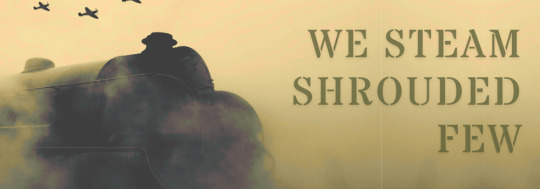
A historical novel about determined women, trains, and winning a war…
Featuring
One woman’s obsession with the railways
Code breaking commuters
Breakfasts cooked on a coal shovel
Being accidentally adopted by an elderly fireman and driver duo
Occasional air raid for added ~spice~
Solidarity in the face of adversity and outdated systems
Summary
Bea had always been fascinated by the railways, but her dream of driving one of the locomotives always seemed out of reach. Working the trains is dangerous, dirty, and completely off limits to the fairer sex.
Then the war came and the men went off the fight. Answering the call to help, Bea and her fellow railway volunteers find themselves with an opportunity of a lifetime. Obscured from judging eyes by steam and smoke they shadow the veteran drivers and engineers, learning what they can on the job and hitting the library when they can't.
The trains need to run, they are vital to the war effort. All it would take is one rogue bomb, one mishap to take out a driver and the wheels stop spinning.
Or at least, that's what the station manager thinks.
Work Page
Currently Doing Research and Initial Planning!
96 notes
·
View notes
Text
An author stole my book idea
What do you do when someone else publishes your book?
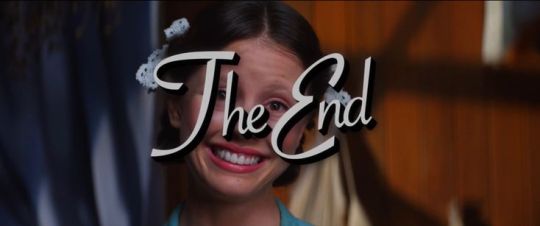
I was scrolling on my phone, browsing a selection of soon-to-be-released books when one in particular caught my eye.
I read the blurb and let out an audible gasp.
The author stole my book idea.
This man who I’ve never met, somehow managed to reach inside my brain, pluck out my story idea, write the book I am writing right now, and turn it into a fully fledged novel. He beat me to print, and now the novel I’ve been working on for the last few months is headed for the trash because how can I continue to write a story that has already been written?
It feels like my “life's work” has been stolen, cruelly whipped away from me overnight. The story that has been building and percolating inside me for years, preparing itself to arrive in my brain and out onto the page.
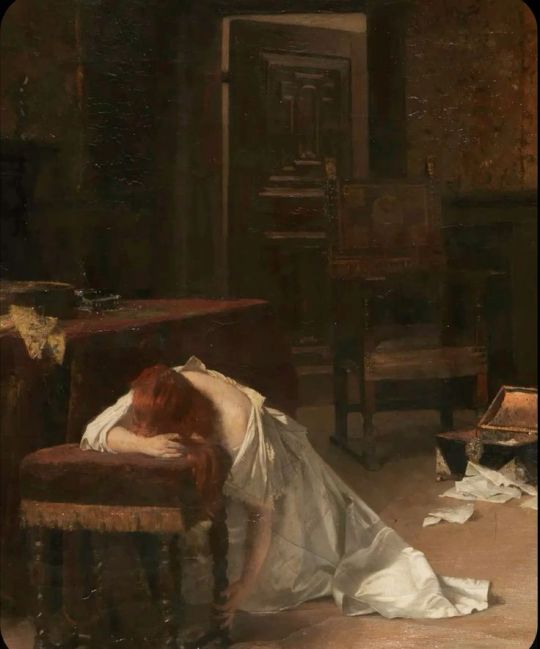
An accurate depiction of me discovering someone else is publishing the book I’m writing
Although, it’s possible that he didn’t actually steal my idea. It’s probable even because he couldn’t have. I don’t even know the guy. The far more likely scenario is that it is just an astonishing coincidence. He happened to have the exact same book idea at the same time as me, but the difference is: he’s a well known, successful, professional crime writer who actually managed to finish the story (and probably did a fantastic job), and I am an unpublished novice writer, who punches out a few hundred words here and there when inspiration strikes.
The best theory as to what has happened is that I have become the victim of a phenomena known as “simultaneous invention”.
Simultaneous invention is the concept that inventions and ideas are conceived independently by different creators, but at the same time.
“Rather than being the products of the individual mind, multiples (aka - simultaneous discoveries) are said to prove that creative ideas are the effects of the zeitgeist, or spirit of the times. At a specific instant in the history of a domain, the time becomes ripe for a given idea. The idea is “in the air” for anyone to pick, making its inception inevitable.” - Dean Keith Simonton, creativity researcher
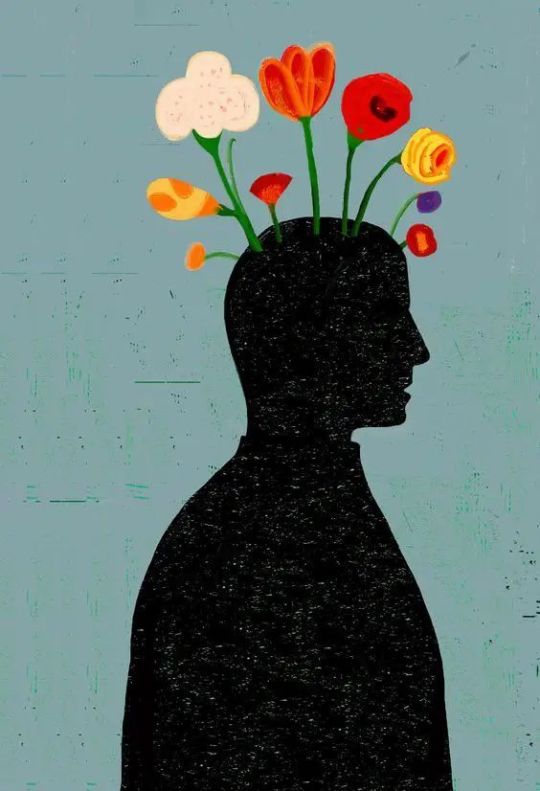
There are mind-boggling cases of simultaneous invention documented throughout history. Here are some of the most famous instances:
1600s: Isaac Newton and Gottfried Leibniz both discover calculus.
1770s: Carl Wilhelm Scheele and Joseph Priestley discover oxygen.
1800s: Charles Darwin and Alfred Russel Wallace both describe natural selection.
1839: Louis Daguerre and Henry Fox Talbot invent the first photographic methods.
1869: Louis Ducos du Hauron and Charles Cros present the earliest workable methods of colour photography on the same day.
1876: Elisha Gray and Alexander Graham Bell independently, on the same day, filed patents for invention of the telephone.
1879: British physicist-chemist Joseph Swan independently developed an incandescent light bulb at the same time as American inventor Thomas Edison was independently working on his incandescent light bulb.
1950s: Jonas Salk and Albert Bruce Sabin invent the polio vaccine.
2015: Takaaki Kajita and Arthur B. McDonald are jointly awarded the Nobel prize for finding that neutrinos have mass.

It sounds like something from a Blake Crouch novel. The idea that two complete strangers, anywhere in the world could come up with the exact idea at the same time. It would be written off as pure science fiction if it weren’t so thoroughly documented.
It came for Charles Darwin, it came for Alexander Bell, and now, it has come for me.
Since I’ve had a solid 48 hours to walk around the house moaning in despair, I figure it’s probably time to put my big girl pants on and think about what to do next.
What does one do when someone else publishes the book you were going to write?
If there’s one thing this sad experience has taught me, it’s this: Do not sleep on that creative idea.
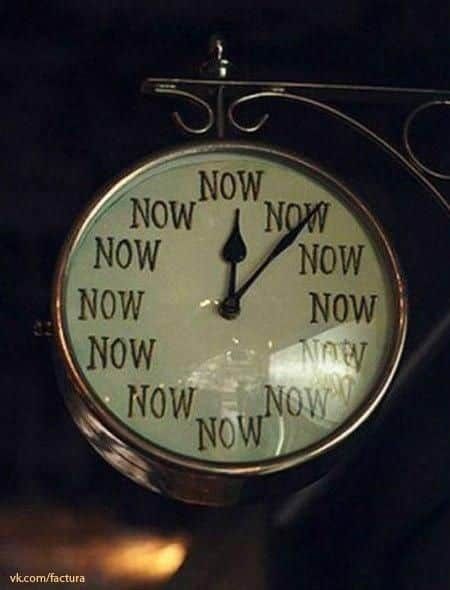
I thought I had all the time in the world to write my story. Donna Tartt took 9 years to write The Secret History, after all. Maybe I could take 9 years to write my debut novel too. But modern life and our shared experience may lead to someone else coming to the same conclusions – or ideas – as you have, somewhere in the world.
This doesn’t just apply to writing. It can happen in any field where creativity and imagination are at play.
Where does this leave me and my manuscript? I think I’ll hold onto it a little longer before sending it to my computer’s trash bin forever. Even though the original premise and core of the story is no longer viable, perhaps there’s something there worth saving. Maybe a shift in perspective or narrative voice. Could it be a white collar crime thriller instead of a murder? Could I set it in a different era? Could I change the genre? Who knows. Maybe this whole saga is a good thing and will force me to pivot. Now, I’m compelled to look at how I can better improve upon what the story was set to become.
One of the people in my writer's group said that this isn’t necessarily a bad thing. If his book sells well, publishers will be frothing to produce more of the same. That said, I’m not sure how I feel about being the runner-up for the prize of cool and interesting story ideas.
So what’s the solution to this confounding mystery of the human mind? How can you ensure your work remains true and original to you when at any point in time, some random person out in the world might be working on the exact same thing?

Maybe the answer is to simply try and be the first to launch, and to do your best not to let perfectionism hold you back from getting started. Maybe done is better than perfect. Or, if you instead find yourself in the same boat as me, is there room to move and change your approach? Could you see it as an opportunity to pivot and find a fresh, unexpected angle?
The truth is, I was stuck in a bit of a rut anyway. I fell out of love with the story idea a few weeks back. When I started writing months ago, I kicked off with a hiss and a roar, smashing my daily word count goal and picking up steam until I hit a wall. I didn’t like the characters and writing became a slog. Instead of feeling inspired and excited by the story, I felt bored and disillusioned. It became something I thought I simply had to finish to avoid the “sunk cost fallacy”.
This uncanny coincidence has forced me to open doors to new possibilities with the story that I hadn’t allowed myself to consider before. Now that the original plan has gone out the window, the idea of returning to the old draft feels strangely exciting again. Like anything is possible and the book could go in any direction.
But I guess you’ll just have to wait and see… Maybe I’ve already said too much.
#book blog#bookish#bookblr#booklr#bookworm#bibliophile#books#books and reading#authors#writer stuff#my writing#writeblr#writers on tumblr#writing#writers and poets#writerscommunity#female writers#writers#author#essay#personal essay#substack#fiction#essay writing
20 notes
·
View notes
Text
This day in history

#15yrsago Mall cops in Norwich, England get police powers https://web.archive.org/web/20091220231959/http://www.edp24.co.uk/content/edp24/news/story.aspx
#15yrsago Kenyan bike-mechanic’s homemade tools https://www.youtube.com/watch?v=gEeyY09YzEY
#15yrsago Science fiction fandom is 80 today https://web.archive.org/web/20091214023834/http://www.tor.com/index.php?option=com_content&view=blog&id=58405
#15yrsago English anti-terror cops ask nursery school workers to watch 4 year olds for signs of “radicalization” https://web.archive.org/web/20100106032907/http://www.timesonline.co.uk/tol/news/uk/crime/article6952503.ece
#15yrsago Just look at this awesome EU banana curvature regulation. https://eur-lex.europa.eu/LexUriServ/LexUriServ.do?uri=CONSLEG:1994R2257:20060217:EN:PDF
#15yrsago Anti-Olympic mural censored in Vancouver https://web.archive.org/web/20091214014017/https://www.theglobeandmail.com/news/national/british-columbia/vancouver-orders-removal-of-anti-olympic-mural/article1396541/
#15yrsago RIAA, MPAA and US Chamber of Commerce declare war on blind and disabled people https://web.archive.org/web/20091214062920/https://www.wired.com/threatlevel/2009/12/blind_block/
#15yrsago Dr Peter Watts, Canadian science fiction writer, beaten and arrested at US border https://memex.craphound.com/2009/12/11/dr-peter-watts-canadian-science-fiction-writer-beaten-and-arrested-at-us-border/
#10yrsago Google News shuts down in Spain https://www.eff.org/deeplinks/2014/12/google-news-shuts-shop-spain-thanks-ancillary-copyright-law
#10yrsago Calling out the doctors who abetted CIA torture https://kottke.org/14/12/medical-profession-aided-cia-torture
#10yrsago Lawquake! Judge rules that explaining jailbreaking isn’t illegal https://www.eff.org/deeplinks/2014/12/pointing-users-drm-stripping-software-isnt-copyright-infringement-judge-rules
#10yrsago We know you love privacy, Judge Posner. We just wish you’d share. https://www.techdirt.com/2014/12/09/judge-posner-says-nsa-should-be-able-to-get-everything-that-privacy-is-overrated/
#10yrsago Furry convention evacuated after chlorine-gas attack https://www.themarysue.com/furry-con-terrorist-attack/
#5yrsago Twitter wants to develop an open, decentralized, federated social media standard…and then join it https://www.techdirt.com/2019/12/11/twitter-makes-bet-protocols-over-platforms/
#5yrsago The true nature of creativity: pilfering and recombining the work of your forebears (who, in turn, pilfered and recombined) https://www.youtube.com/watch?v=CB1KE5dbOZo
#5yrsago South Carolina’s feudal magistrate system may take a modest step toward modernization https://www.propublica.org/article/we-investigated-magistrates-now-lawmakers-want-to-overhaul-the-system
#1yrago Daddy-Daughter Podcast 2023 https://pluralistic.net/2023/12/11/daddy-daughter-2023/#not-bye
9 notes
·
View notes
Text
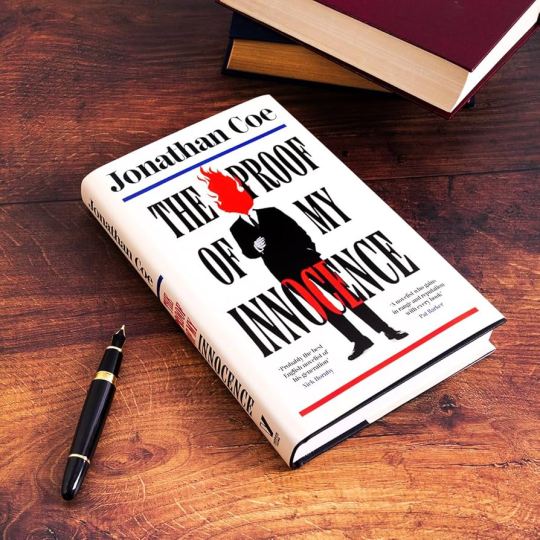
The Proof of My Innocence by Jonathan Coe
This tricksy caper ranges from 1980s Cambridge to the rise and fall of Liz Truss with entertaining results
Well, it worked for Richard Osman. Twenty-three-year-old Phyl, stuck in her parents’ house with an English degree and a zero-hours job in a sushi chain, is wondering how hard it could be to write a cosy crime novel. “Death in a Thatched Cottage? The Beach Hut Murders? The Flapjack Poisonings?” As another character points out, it’s bizarre that violent homicide has been rebranded as “cosy”. “It’s very British, in some indefinable way.”
Jonathan Coe, the laureate of Britishness, sets his 15th novel against a particularly wobbly period of national history: the short-lived ascendancy of Liz Truss and the death of the Queen in autumn 2022. It is indeed a happily playful and nicely satisfying slice of cosy crime, scattered with clues and red herrings, locked‑room mysteries, teetering cliffhangers and stagily withheld information. Before she is shocked out of her apathy by a sudden death, Phyl also considers trying her hand at the genres of dark academia and autofiction, and accordingly one section of the book is a memoir of mysterious goings-on in a Cambridge college in the 1980s, and another a report in real time of a search for a rare book, with two narrators who can’t agree on whether to use the present or the past tense (“fake and embarrassing”).
There’s a lot going on, and Coe marshals it all with ingenious ease. As ever, the real target – the savagery behind the cosiness – is the amoral individualism and free-market greed of those with power and privilege, first excoriated in 1994’s What a Carve Up! Here, rightwingers gather at a country house hotel for the TrueCon conference, delighting in the elevation of Truss and Kwasi Kwarteng. Alongside the culture war comedy of speeches such as “Britain’s Real Pandemic: The Woke Mind-Virus” is the serious business: big money jostling to get in on the carving up of the NHS.
Blogger Christopher Swann, a friend of Phyl’s mother from their Cambridge days, has been investigating the incursion of the far right into the political centre for decades, only to be dismissed as a paranoid fantasist: officially, the plans are never to privatise the NHS, only to “streamline” it. As we see in the memoir of another Cambridge friend, describing his culture shock on arriving there as a northern state school kid, these covert networks of power have been spreading since the days of Thatcher and Reagan.
The political mystery – is there a smoking gun that will reveal a plot to destroy the NHS – plays second fiddle to a literary one: the fate of an obscure writer from the 1980s. Peter Cockerill was that extremely rare phenomenon, a rightwing novelist, furious to be punished for his politics with exclusion from the glamorous gang of Rushdie, Amis, McEwan et al. And the solution to the mystery, as the title suggests, rests on a proof (copy) of My Innocence, the book in which he renounced fiction for good.
Coe enjoys himself satirising literary fashions, creative jealousy and the inevitable passing of time, with a bittersweet nostalgia for his own youth, when society was seduced by money, and the books world by Martin Amis’s Money. He gives himself a walk-on part in the Cambridge section as Tommy Cope, an ineffectual English student mainly known for writing incredibly bad poetry who later surprises his peers by achieving “modest success” with the “mildly satirical” Quite the Mash-Up.
Modest, mild: Coe is only too aware of his own understated – even cosy – reputation. His fiction has always ranged gentle, decent souls against headbangers and maniacs, and Phyl is no exception. Amid the literary fun and games, there’s a deeply sad note as she muses on the dog-eat-dog Britain wrought by the events of the last 40 years: “How is someone like me supposed to survive in a world like this? Everything that defines me is unsuited for it. My passivity. My idealism. My innocence. I just don’t have what it takes.” Phyl’s parents, too, are passive and shoulder-shrugging in the face of the political insult of Liz Truss: “Prime ministers come and go,” sighs her dad. The old have run out of energy and indignation; the young feel stuck in hopelessness and inertia, retreating from the world, as Phyl does, under the comfort blanket of endless episodes of Friends: a safe, pre-smartphone universe feeding off “nostalgia for a time before we were born”.
This is the context in which Coe plumbs the disconnect between Truss’s appointment as PM and the general bafflement that greets it, threading her speeches through the narrative along with the infuriating transport announcement “See it. Say it. Sorted”, a grating real-world soundtrack to his metafictional hijinks. His previous novel Bournville caught the national mood during historical highlights from the 1953 coronation to the wedding of Charles and Diana; here there’s a great set piece focusing on mourners filing past the royal coffin: the nation brought together by two of its favourite things, queueing and the Queen.
Another Coe tic is the piece of art, whether film or music, often glimpsed or heard in childhood and ever after treasured, coming to represent something more than mere nostalgia: a secret world behind the world. In Middle England it was the song Adieu to Old England: “One of the most eerie and melancholy English folk tunes ever written,” thinks Benjamin Trotter. Here it’s the “haunting and wistful” ballad Lord Randall, borrowed by Bob Dylan for the structure of A Hard Rain’s A-Gonna Fall, which raises goose bumps in all who hear it and is more deeply embedded in a central character than ever before.
Coe’s subject may be inertia and nostalgia, but The Proof of My Innocence is full of energy. It’s a madcap caper, a sideways memoir, a tricksy jeu d’esprit that is also a quiet defence of fiction in a post-truth age, and enormous fun to read.
Daily inspiration. Discover more photos at Just for Books…?
7 notes
·
View notes
Note
Fic authors self rec! When you get this, reply with your favorite five fics that you've written, then pass on to at least five other writers. Spread the self-love ❤
(if you want to!)
:0 Thanks for the ask, Lee!
1) Hymnal To The Year-Turn
This one is very predictably my absolute favourite. Fantasy-medieval setting (AKA, historical accuracy is a thing of the distant past, and I'm playing dress up with different time periods) AU where Todd is a court bard exiled from an enemy country, Neil is a knight, and court intrigue ensues. Fraught sibling relationships included for free!
2) Berth
Very short oneshot exploring the "Neil and Todd run away from Welton" possibility, set on the train to New York. Not remarkable, but I like some of the prose in it. :]
3) tick tick
An epistolary (text messages) companion to all the episodes of Qi Hun, as well as expanding past the last episode because Guangliang just got kind of... out of hand. Waves hands. You know how it is. Silly and fun to write!
4) To Overtake A Scald-Crow
... Not actually technically a fic I've written, because it's a WIP. Still one of my favourite! AU where Todd, in the 1910s, gets sucked through a portal and ends up in the world of the fair folk. Massively about the importance of oral storytelling (+ being gay and doing crimes).
5) ... Another unnamed WIP (sorry!). More fantasy (are we sensing a pattern LMFAO). Tonally (and wrt to some plot points) an AU of the The Dark Is Rising sequence by Susan Cooper, because I got nostalgic and really wanted to write something in that particular style of British children's fantasy fiction. Snippets for the WIPs below:
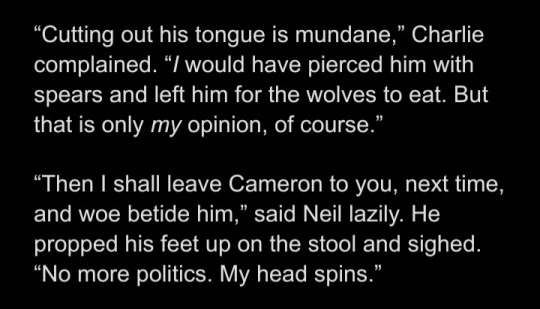
^ To Overtake A Scald-Crow
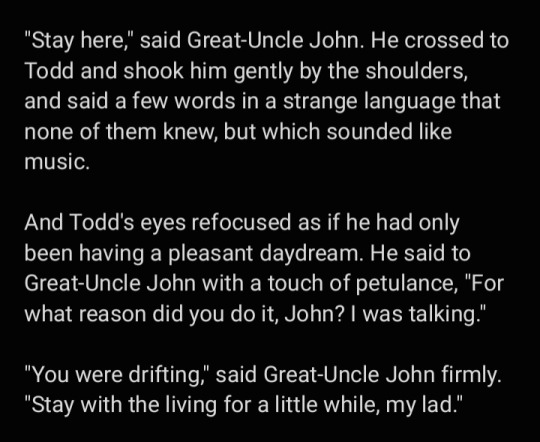
^ unnamed WIP T_T
#sorry this took me a while to get around to! i was occupied#the moral of this ask is: i need to write more fic that isn't cute oneshots because while i like writing them#i don't... love them afterwards. lmfao#tristan writes#dead poets society#anderperry#qi hun#guangliang#ask
15 notes
·
View notes
Text
The Leather Funnel (A Sir Authur Conan Doyle Audio Drama)
dailymotion
Sir Arthur Ignatius Conan Doyle KStJ, DL (22 May 1859 – 7 July 1930) was a British writer and physician. He created the character Sherlock Holmes in 1887 for A Study in Scarlet, the first of four novels and fifty-six short stories about Holmes and Dr. Watson. The Sherlock Holmes stories are milestones in the field of crime fiction.
2 notes
·
View notes
Text
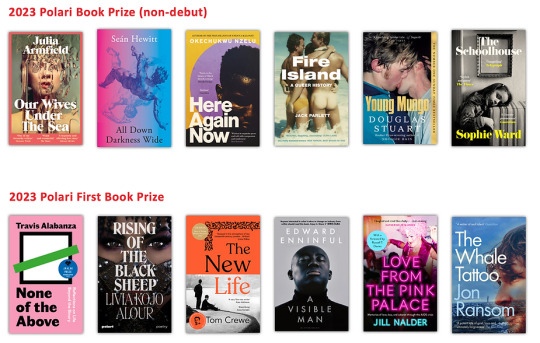
2023 POLARI PRIZE SHORTLISTS CELEBRATE QUEER STORIES THAT “ENTERTAIN, ENRICH AND INSPIRE”
Memoir, non-fiction, and critically acclaimed literary fiction from a mixture of independent presses and larger publishers dominate the dynamic shortlists for this year’s Polari Prize and Polari First Book Prize, the UK’s only dedicated awards for LGBTQ+ literature.
“The quality of long-listed titles this year was so exceptionally high, a number of much-loved titles didn’t make the shortlists” said Paul Burston, founder of the prizes. “Taken together, this year’s shortlists are a powerful testament to the quality and diversity of LGBTQ+ writing in the UK and Ireland today. From dazzling debuts to writers delivering on their earlier promise and really upping their game, these are books to entertain, enrich and inspire.”
Powerful stories of resilience and resistance are the focus of this year’s Polari First Book Prize. None
of the Above by Travis Alabanza (Canongate) is an electric memoir exploring life outside the gender boundaries imposed on us by society. Edward Enninful’s A Visible Man (Bloomsbury) also makes
the list, detailing how the man behind British Vogue has built an extraordinary life; more memoir makes an appearance with It’s A Sin’s Jill Nader and her heartbreaking and eye-opening memoir, Love from the Pink Palace (Wildfire). Fiction titles spotlighted in this category are Jon Ransom’s complex and transporting The Whale Tattoo (Muswell Press) and Tom Crewe’s historical debut novel, The New Life (Chatto & Windus). Rounding up the Polari First Book Prize is Livia Kojo Alour with Rising of the Black Sheep, the only poetry title in the shortlists.
Poet Sophia Blackwell, Polari First Book Prize judge, said:
“The shortlist is full of fearless, moving and original stories. Full of insights about how the authors came to occupy their particular places in the world, they also set out hopeful, ambitious visions for the future.”
Rachel Holmes, Polari First Book Prize judge, said: “Look no further for this year’s quintessential queer bookshelf to illuminate and inspire the approaching autumn evenings, winter weekends and festive season. There’s a beautiful, brilliant read here for all the queer family. Comfortably encompassing diverse genres and multiple points of view, fledgling emerging talent and celebrated household names, this year’s shortlist bravely re-empowers the past, interprets the present, and boldly imagines the future.”
Adam Zmith, Polari First Book Prize judge, said: “The titles on the shortlist for this year’s Polari First Book Prize wrestle with history and the present moment in engaging and empathetic ways. I loved reading these books, and feeling the queer power in them and their authors’ visions.”
Karen McLeod, Polari First Book Prize judge, said: “This shortlist is dynamic, expansive, moving and truly novel (is it too late to request a box of tissues as a rider?) I am proud we have such a diverse and emotionally intelligent set of queer voices being published today.”
Queer utopias, further memoir and exquisite prose feature in the Polari Book Prize shortlist with Jack Parlett’s Fire Island (Granta), a vivid hymn to an iconic destination, being selected and poet Seán Hewitt turns his hand to memoir in All Down Darkness Wide (Jonathan Cape). A varied spread of fiction completes the shortlist with Julia Armfield’s deep sea love story Our Wives Under the Sea, Okechukwu Nzelu’s tender study of family and grief Here Again Now (Dialogue Books), Sophie Ward’s gripping thriller The Schoolhouse (Corsair) and concluding the list is Douglas Stuart’s heartbreaking Young Mungo (Picador).
Joelle Taylor, Polari Book Prize judge, said: “This year’s Polari Prize shortlist reflects the complexities of contemporary LGBT+ lives in work that is nuanced, expansive, intimate and strange. History, futurism, crime, poetic memoir, and social commentary collide to create rich narratives that rewrite us even as we read.”
VG Lee, Polari Book Prize judge, said: “We have a strong and diverse shortlist for the Polari Prize. These are books that will appeal to many. They are that odd word, “keepers”- books to return to.”
Suzi Feay, Polari Book Prize judge, said: “This year’s shortlist highlights the sheer range and power of LGBTQ+ writing across all genres. Passionate, stylish and outspoken, these are voices to haunt and seduce. Our six choices deserve the widest readership.”
Chris Gribble, Polari Book Prize judge, said: “This year’s Polari Prize shortlist lays out the joys, challenges and complexities of contemporary and historical LGBTQ+ lives in a brilliant array of fiction and non-fiction that will leave no one in any doubt that our stories are worthy of their places on every book shelf and in every library. These writers are working at the peak of their powers and if you haven’t read their work yet, you have a real treat in store.”
2023 Polari Book Prize (non-debut)
Our Wives Under the Sea by Julia Armfield (Picador)
All Down Darkness Wide by Seán Hewitt (Jonathan Cape)
Here Again Now by Okechukwu Nzelu (Dialogue Books) Fire Island by Jack Parlett (Granta Books)
Young Mungo by Douglas Stuart (Picador)
The Schoolhouse by Sophie Ward (Corsair)
2023 Polari First Book Prize
None of the Above by Travis Alabanza (Canongate Books)
Rising of the Black Sheep by Livia Kojo Alour (Polari Press)
The New Life by Tom Crewe (Chatto & Windus)
A Visible Man by Edward Enninful (Bloomsbury)
Love from the Pink Palace by Jill Nalder (Wildfire)
The Whale Tattoo by Jon Ransom (Muswell Press)
Established in 2011, The Polari First Book Prize is awarded annually to a debut book that explores the LGBTQ+ experience, and has previously been won by writers including Kirsty Logan, Amrou Al-Kadhi, Mohsin Zaidi and last year’s winner Adam Zmith, for his keenly-researched history of poppers, Deep Sniff.
Established in 2019, The Polari Book Prize awards an overall book of the year, excluding debuts, and previous winners include Andrew McMillan (Playtime), Kate Davies (In At the Deep End), Diana Souhami (No Modernism Without Lesbians) and last year’s winner Joelle Taylor for her remarkable collection C+nto & Othered Poems which explores butch lesbian counterculture in London.
11 notes
·
View notes
Text
List of my favorite works of literature. part 1
(simply because I love reading and want more people to notice & enjoy these works)
Starting with a shorter type of media-list that I have: Manga
1) Claymore
main character: a woman
Body horror & Science fiction & Psychology
A society of genetically modified female warriors who are incredibly skilled with swords, and they all work for the same organization (not by their own choice) on an island. Their only purpose and goal is to protect the island's inhabitants from monsters that devour people.
Worldbuilding, characters, story. Everything is perfect. The life history of the characters, the way they experience events and try to get to the truth - emotional swings I got while reading are impossible to describe in words.
2) Moriarty The Patriot
main character: a man
Crime Mystery Thriller (based on novels about Sherlock Holmes) & Politics
The story from the perspective of Professor Moriarty, who also now has 2 brothers. They are driven by one motivation: destruction of the class system of the British Empire through crime.
Love world building, how the author plays with characters that already exist, a very emotional piece of work. The lack of female characters and their influence on the plot is a bit noticeable, but I can forgive it for now (the writer and artist are working on a sequel to the manga)
3) Psycho-Pass: Inspecteur Akane Tsunemori and Psycho-Pass 2
main character: a woman
Politics & Crime & Psychology & Mystery & Cyberpunk & Thriller
An era of artificial intelligence, which itself assigns people the jobs it thinks they are best suited for. Future where people live in a society with psychological passports that show the % of probability that the passport holder will become a criminal in the future (or already is one) .
Readers watch the story from the point of view of an inspector who has just started her work in the - let's call it - psychological police. We can see how living in such system affects ordinary people and employees of that same psychological police, because they also have their own passports, the % of normality of which must be monitored; some brave and smart (or too sure of themselves) people try to go against the system and return freedom to humanity in bloody ways
I really, really, really enjoyed everything that happened in this manga. Psycho-pass actually consists of 7 manga series, but you don't have to read everything if you don't want to
-Part 2 will be about fantasy books-
2 notes
·
View notes
Note
hiiiiiiii Radegonde 😤😤 can we get a prince and heretic post 🤑🤑 i need everyone here to know about Renée my angel (also more propaganda for mrs bowen🤌🤌🤌)
That, my friend, I can do! You wanted a post on Marjorie Bowen's work with a focus on Renée le Meung, the protagonist of two of Bowen's novels, which you shall have!
The author

Margaret Gabrielle Vere Long, also known as Marjorie Bowen. Photograph, cropped, undated, presumably 1910s, around the time she wrote her Dutch history novels.
Marjorie Bowen was the pen name of British writer Margaret Gabrielle Vere Long (1885-1952), whose novels were, in her time, quite well-read and critically acclaimed (she, for instance, received fan mail from one Arthur Conan Doyle), but are largely forgotten today. Under several pen names, the most prolific being that of Marjorie Bowen, Vere Long published novels and short stories ranging in genre from crime to ghost stories, to contemporary and historical fiction, with the latter making up the most extensive category of her work.
She published her first novel, The Viper of Milan, in 1906. Her first as much as her later later novels showcase her unique style of writing, which relies on rich, opulent, yet purple-prose-free descriptions that allow the setting to come to life, and a great deal of historical reasearch, into which she manages to weave a gripping fictional plot.
Marjorie Bowen and Dutch history: The William of Orange series
Following the successful launch of The Viper of Milan, Bowen published The Master of Stair (American title: The Glen O'Weeping) in 1907. This is the first novel featuring, if you will, a cameo appearance of the subject of her later, and perhaps best-known triology of novels on William of Orange (1650-1702). Revolving around the Glencoe Massacre, William, then King William III, features as some sort of antagonist to the hero of the story. While not coming across as well-written and multi-dimensional as in later novels, it is evident that Bowen had an interest in William III, which she, three years and much research later, would put to paper in another project, the William of Orange triology.
From 1910 to 1911, Bowen, published her arguably most famous work, the William of Orange triology (I Will Maintain (1910); Defender of the Faith and God and the King (both 1911)), which went through a double-digit number of editions in the 1910s alone.
While Bowen is strongly sympathetic to her protagonist, William of Orange (1650-1702), to the point that she may have somewhat identified with him on account of her 'outsider' nature within her own family, something she saw reflected in the historical William of Orange (see e. g. Tibbets, John C.: The Furies of Marjorie Bowen (2019), p. 70, which includes an analysis of the series including potential autobiographic links), whom she researched with astonishing detail, she does not necessarily write William as a sympathetic character, which given the time of Bowen's writing her series would presumably have been an expected characterisation within the idiological frame of British imperialism (which does show in other ways, Bowen and her books being a product of their time), but rather depicts him as a flawed, driven and profoundly lonely man who in the end leaves the reader to question if perhaps he overreached his initial achievements, and personal happiness, in a quest for ever more and ultimately inobtainable glory.
Another interesting feature of the series is Bowen's realistic depiction of William of Orange's chronic illnesses, particularly his asthma.
The novels' most striking quality is however that William of Orange was written as what we might call distinctly neurodivergent and very likely asexual, which is intriguing, taking into account that even the term autism was not yet introduced into scientific language until 1911, when the second and third novels were published.
Three years after the release of volume 2 and 3 of the William of Orange triology, Bowen, presumably as a sort of prequel to the William of Orange novels, turned her head to write two novels about the first William of Orange (1533-1584), great-grandfather to the man she portrayed in the 1910-1911 triology through his youngest son Frederick William, and the latter's son, another William.
Prince and Heretic (1914) and William, by Grace of God (1916) (...and Renée)

The face Renée le Meung cannot resist
This time, the focus lies not so much on a historical figure cast as main character as on a fictional protagonist who skirts the edges of (this) William's orbit: her name is Renée le Meung, a young, exiled Dutchwoman orphaned by the religious persecution of the counter-reformation in the Spanish Netherlands who earns her upkeep by working in the household of princess Anna of Saxony, a wilful, vain and youthfully immature German princess set to marry William of Orange.
It is in Anna's retinue that Renée comes into some measure of contact with William whom she is at first infatuated, then downright obsessed with, both romantically, and increasingly politically as the tensions between William of Orange and the Spanish Habsburgs are about to culminate in the Eighty Years' War.
With her prequel duology to the William (III) of Orange series, Bowen followed a very similar recipe as with the novels in the triology; again, her main character is a socially isolated, lonely orphan mainly carried through life by their personal faith who sees themself as being not like their peers.
Renée's character can, somewhat tongue-in-the-cheek, be summed up as what would happen if Victor Hugo's Éponine Thénardier had been a 16th century monarchist with access to that one Radiohead song (you know the one).
Over the course of two novels, Renée's life from young adulthood to middle age is laid out, her fortunes, by her own choice, ever-intertwined with those of William of Orange.
She endures physical abuse at the hands of his first wife, endears herself to William's mother, jealously eyes his subsequent wives, some of whom she ends up working for, travels around to be close to him, and gives up on a number of opportunties that would have allowed her the possibilities of a less strenuous life, perhaps even love, and a family of her own.
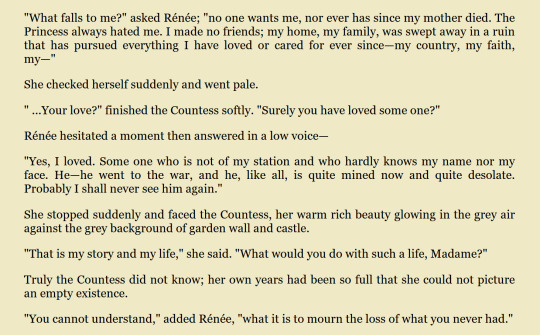
Oh, the awkwardness of almost confessing your crush to... his mother!
Her most outlandish show of devotion to the man she idolises comes into being when she adopts an orphaned baby whose father died in a battle William also lost two brothers in, and whom the local and rather patriotic parson had christened Wilhelmina in honour of William.
Ironically, Renée's life seems to take a turn for the healthier once she takes on the responsibility of caring for little Wilhelmina; she starts socialising, no longer considers herself lonely as she has developed a newfound interest in life, and dotes on her foster daughter- only to, at the next possible moment, slink off to stand under William's window in the small hours of the morning again once the opportunity materialises (but not without arranging for a child minder for her daughter in the mean time).

Renée is very normal. Very normal. Nothing to see here.
Sadly however, things cannot go on like this forever...
Final thoughts
Bowen's novels are enjoyably written historical fiction and easily accessible being in the public domain. They're products of their time, of course, but Bowen surprises the reader by her choice of main characters who often astonish, rather than confirm the reader's expectations of the genre: her main characters are autistic war criminals and celebrity-stalking single mothers in thorougly-researched and sumptuously described historical settings, offering a refreshing take on the genre.
When they were first published, Bowen's novels were marketed as "historical romances", which could not be further from the truth; while love, and the humanity and self-discovery inherent in loving another person are themes explored with both Renée and William III in the 5 Dutch history novels, Renée's unrequited devotion to the man she loves remains unspoken, unacted upon, and only in the third volume of the triology does romantic love feature for William III through the experience of losing his wife, and having to live with the knowledge that he made many mistakes in an initially difficult relationship.
While I am personally not averse to the odd historical romance novel, I enjoy the fact that Bowen's historical fiction veers off the beaten path here: her novels are not so much about finding a perfect happily-ever-after, but living in a world of difficulty, and the different shapes relationships, and consequentially, love, can take over time, and how they alter the people involved; William III discovers that life is about more than conquering and sticking it to France as he, looking back on their marriage, at last seeks Mary II's forgiveness for his past behaviour around her when they were newlyweds and Renée, through all odds, gains the attention, and, within the possibilities of their vastly different social status, even confidence and friendship of the man she secretly loves.
If William III's quest for glory, and Renée le Meung's quest for love (or at least being close to the man she loves) have one thing in common, it is that in the end, a goal, the fantasy of a happy end, inobtainable even perhaps, does not matter so much as the path life sends one on, and what we choose to make of it.
I can only warmly recommend Bowen from the comparatively few novels of hers I have read so far!
#ask#ask reply#defensivelee#20th century#16th century#17th century#18th century#marjorie bowen#books and literature#books and reading#british history#historical fiction#book reccs#book review
8 notes
·
View notes
Text
Midsomer Murders has like. a lot more gay people in it than I anticipated. all one-off characters so far, but still, I think it’s come up in more episodes than not? with great variety - sometimes they’re awful, sometimes they’re lovely; always they’re characters with depth. I’m certainly not going to come out and tell you it’s Great Rep or anything, but it’s really interesting to me, especially coming from a British show in the late nineties. I’ve watched a lot of crime procedurals and similar tv, and gay folks definitely aren’t depicted this often or with this much complexity in pretty much any of them, especially in any of the stuff I’ve seen from the aughts. (I’m not sure I’ve watched anything before this from the nineties.) things have gotten a little better in the last decade or so, but it’s often slow going.
it’s also interesting to me that in spite of any unconscious biases the writers might have affecting the way they write these characters, the actual expressed, on-screen attitudes are mostly quite accepting. Troy is sometimes a bit uncomfortable, and he tends to use, uh, not-so-polite terms, but there’s little to no malice there - if anything, he’s usually just kind of clueless. but Barnaby is quite straightforward about not minding anyone’s sexuality. off the top of my dome, there was the guy in 2x01 who expressed disgust at his own desires, but that aside I can’t recall any overt homophobia in-fiction so far.
…as an aside, am*zon claims I’m watching 2x03 Dead Man’s Eleven right now, but I went to look up something about the episode and it appears that I’m actually seeing 3x04. so. that’s interesting. still, though, the gay character is pretty good.
5 notes
·
View notes
Text

Inspector Rebus Novels. John Rebus is one of the most enduring characters in crime fiction, first appearing in Knots & Crosses in 1987.
Rebus is a British television detective drama series based on the Inspector Rebus novels by the Scottish author Ian Rankin. The series was produced by STV Studios for the ITV network, and were broadcast between 2000 - 2007.

Ian Rankin’s fictional detective survived military service during the Northern Ireland Troubles, fist fights with criminals and bent cops in his native Edinburgh, and even a lifetime of heavy drinking and smoking.
The new DI John Rebus (Richard Rankin) will being forced to confront challenging circumstances.

Ian Rankin’s Rebus, which aired for four seasons on ITV in the early noughties helmed by John Hannah and then Ken Stott, will be in his 30s, recently divorced and demoted to Detective Sergeant. Eleventh Hour Films is producing and Gregory Burke is writing. Filming starts this year, with Viaplay planning for a returning series.

Richard Rankin is not related to Ian Rankin Scottish writer it’s just a coincidence. Richard’s surname isn’t Rankin it’s his stage name (born Richard Harris). His relative is Colin Harris also an actor, writer, and producer from Glasgow, Scotland.
#IanRankin #Rebus #RichardRankin #Viaplay #EleventhHour Films #GregoryBurke
8 notes
·
View notes